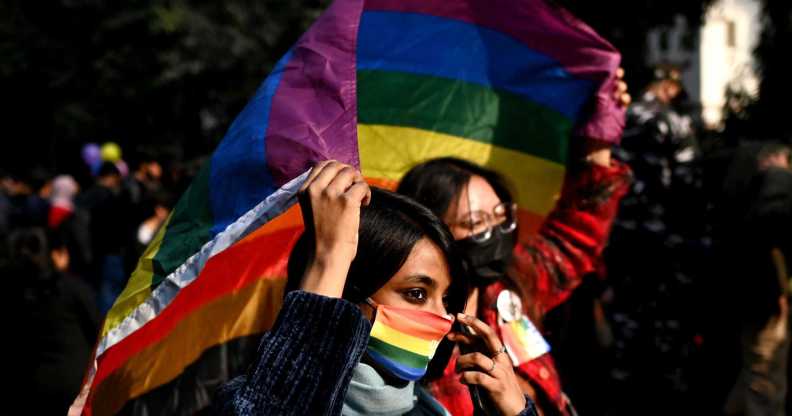Indian government submits opposition to same-sex marriage ahead of supreme court case

The Indian government has outlined its opposition to same-sex marriage (SAJJAD HUSSAIN/AFP via Getty Images)
The Indian government has opposed same-sex marriage in a 56-page long filing provided to the country’s top court ahead of a hearing.
On Monday (13 March), India’s Supreme Court is set to hear from four same-sex couples who have asked the court to recognise gay marriages, so they can have access to the same rights and protections as heterosexual people.
Currently, India does not recognise same-sex marriage but acknowledges the right of what is known as an “unregistered cohabitation”.
In response to the legal challenges, prime minister Narendra Modi’s government has said homosexual relationships are “not comparable” to heterosexual ones.
“Living together as partners and having sexual relationship by same sex individuals [which is decriminalised now] is not comparable with the Indian family,” the government’s Ministry of Law stated in the document given to the court, which was shared by Live Law.
The government went on to describe heterosexual marriage as the “norm throughout history” and “foundational to both the existence and continuance of the State”.
LGBTQ+ activists and groups in the South-East Asian nation have been calling on the government to usher in same-sex marriage and other rights for years.
In 2018, India’s top court officially scrapped a colonial-era law banning gay sex, officially decriminalising homosexuality in the country.
However, despite this major development for LGBTQ+ rights in India, progress has been slow and attitudes remain discriminatory, with homosexuality still considered a taboo subject.
Uday Raj Anand, who is one of the litigants and wants to marry his partner Parth Mehrotra, told Reuters that “they can’t do so many things in the process of living together and building a life together”, without same-sex marriage being legalised.
In response to the government’s opposition to equal marriage, the Queer Hindu Alliance shared its “disappointment” and said the decision “perpetuates discrimination against the LGBTQIA+ community”.
In recent months, several Asian countries have made steps towards LGBTQ+ equality.
In August, Singapore also struck down its own colonial-era law which criminalised homosexuality and this was followed by Sri Lanka in February.
How did this story make you feel?

